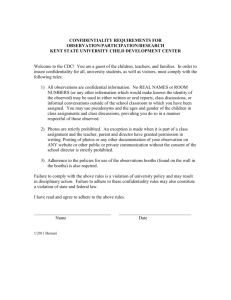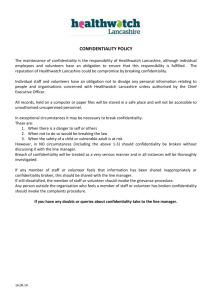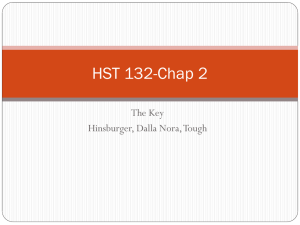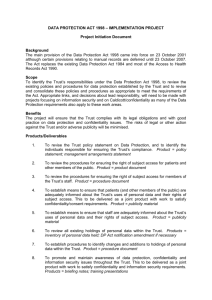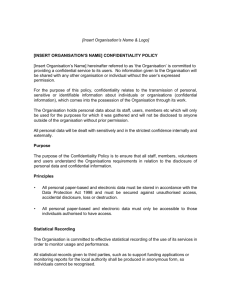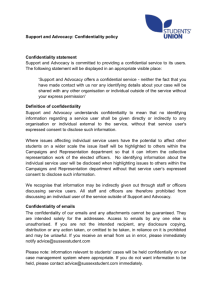confidentiality - Learn @ Coleg Gwent
advertisement
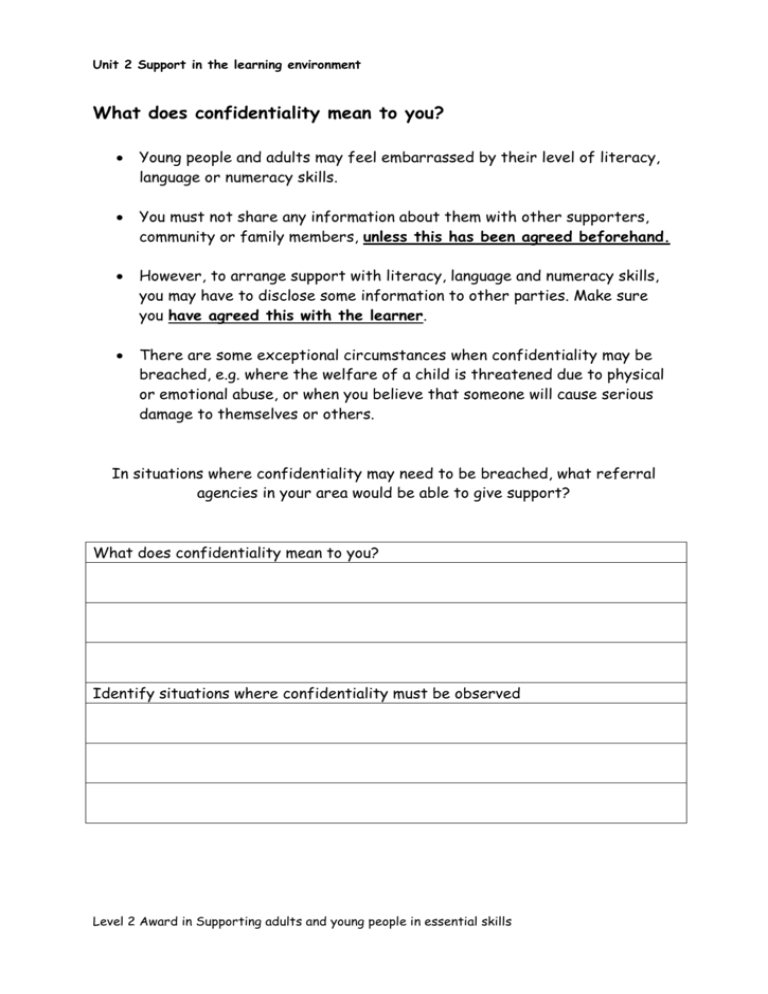
Unit 2 Support in the learning environment What does confidentiality mean to you? Young people and adults may feel embarrassed by their level of literacy, language or numeracy skills. You must not share any information about them with other supporters, community or family members, unless this has been agreed beforehand. However, to arrange support with literacy, language and numeracy skills, you may have to disclose some information to other parties. Make sure you have agreed this with the learner. There are some exceptional circumstances when confidentiality may be breached, e.g. where the welfare of a child is threatened due to physical or emotional abuse, or when you believe that someone will cause serious damage to themselves or others. In situations where confidentiality may need to be breached, what referral agencies in your area would be able to give support? What does confidentiality mean to you? Identify situations where confidentiality must be observed Level 2 Award in Supporting adults and young people in essential skills Unit 2 Support in the learning environment Case Study 1 David has been coming to the centre for the past few weeks. He’s told you he finished school last year and hated it there. (He is actually 15 and still at school, but he looks like a 17 –year-old). He’s helpful around the centre and as he’s quite good at using the computer, he has asked if anything wants typing up. One day you walk in to find him typing up some personal details from the information supplied to you by an adult who wanted to start a numeracy skills course. How would you deal with the situation? What strategies should have been applied to ensure confidentiality? What other general points should be established at the centre to ensure confidentiality? Level 2 Award in Supporting adults and young people in essential skills Unit 2 Support in the learning environment Case Study 2 A new family has just moved into your area. The mother, Jo, has started to attend the playgroup session and in conversation has said that she would like to support her older child with his schoolwork, but that she doesn’t feel her skills are up to much. She said that when she was at school, she had been on by other children who said that she was ‘thick’. Another parent, who attends a literacy class, has said to his supporter that he is going to let the child’s teacher know by ‘having a word in her ear’. What could be the possible repercussions if a basic skills supporter were to do this? If you knew that another supporter in your basic skills group was about to do this, what would you do? Level 2 Award in Supporting adults and young people in essential skills Unit 2 Support in the learning environment Points to consider Case study 1 Decide who the right person is to discuss this with David. (centre head, tutor…) Explain confidentiality to him, stressing that you would not let others read personal information about him. What appropriate tasks could you give him to help in the centre. Is the office open to all? Is confidential material locked away securely? David and others need to be clear about their roles. Case study 2 Possible repercussions could be that if Jo feels that she is being discussed, it could make her upset or angry. Socially, this could be very damaging to Jo, as she is new to the area and presumably wants to make new friends. She may already feel stigmatised by her lack of skills. It could make contact with her child’s teacher embarrassing and compound the situation. If it happened in the basic skills group setting it could lead to others feeling less confident about giving personal information. Decide who would be the right person to discuss this with. Explain confidentiality to the parent who wishes to pass on this information. Level 2 Award in Supporting adults and young people in essential skills




